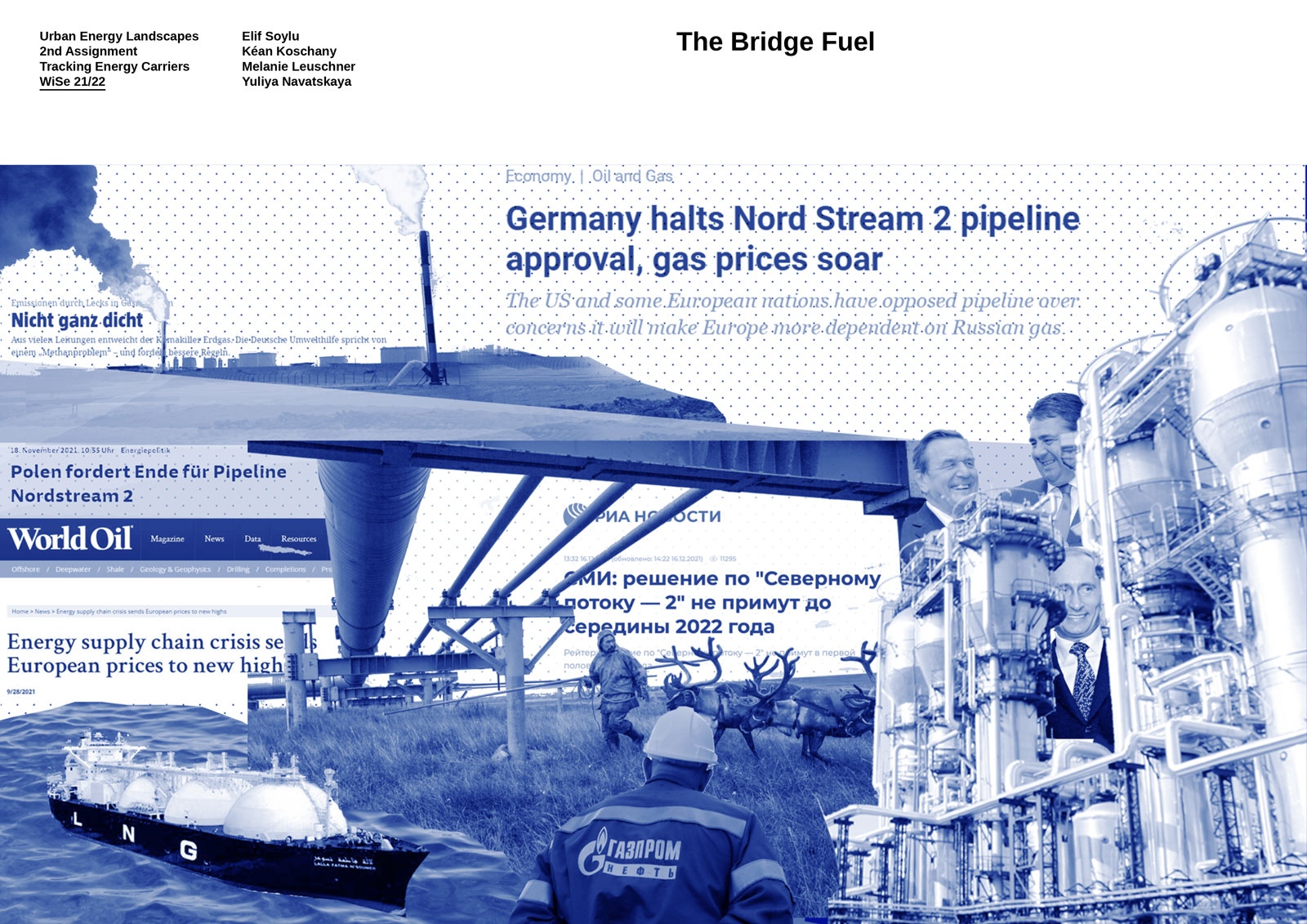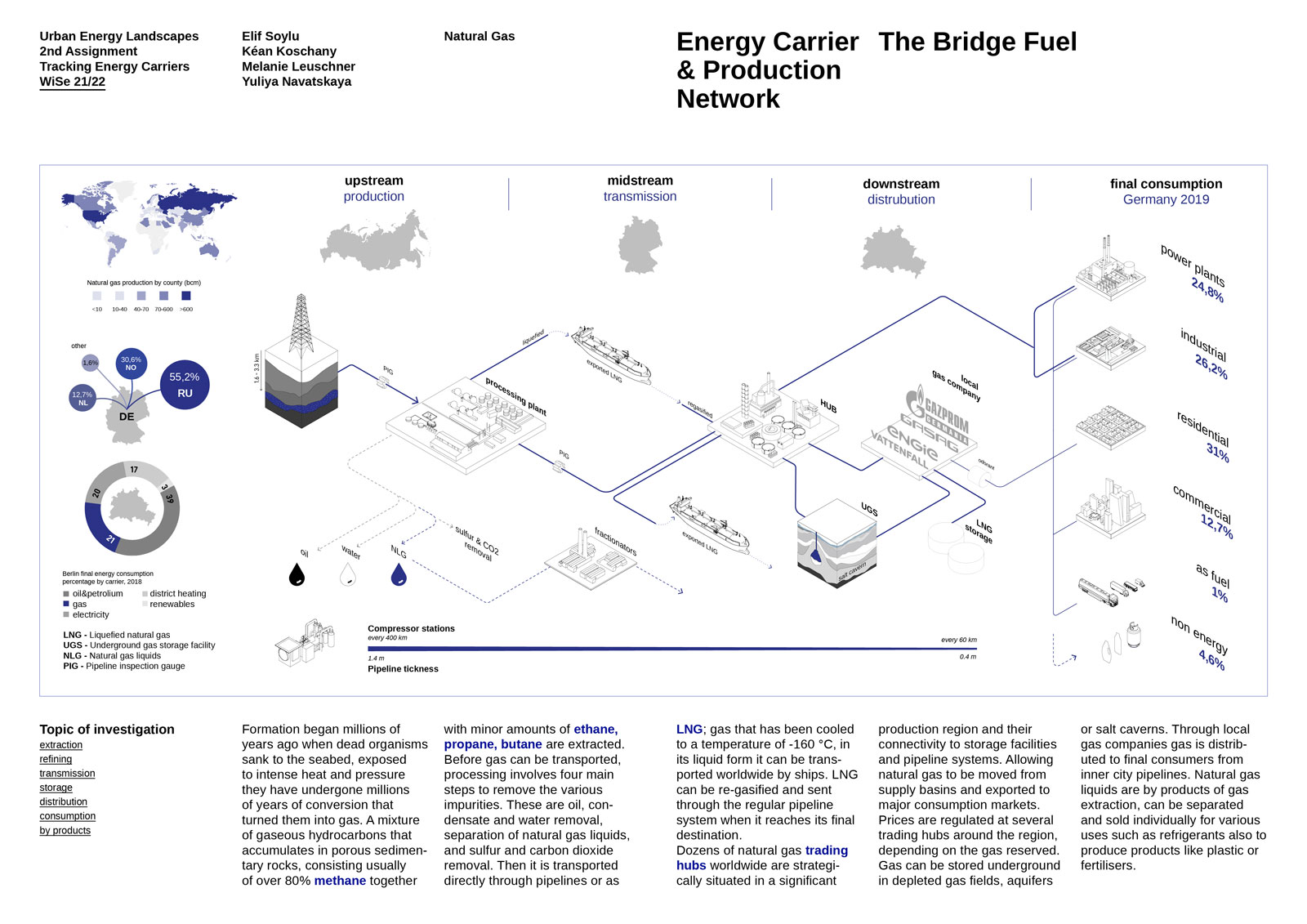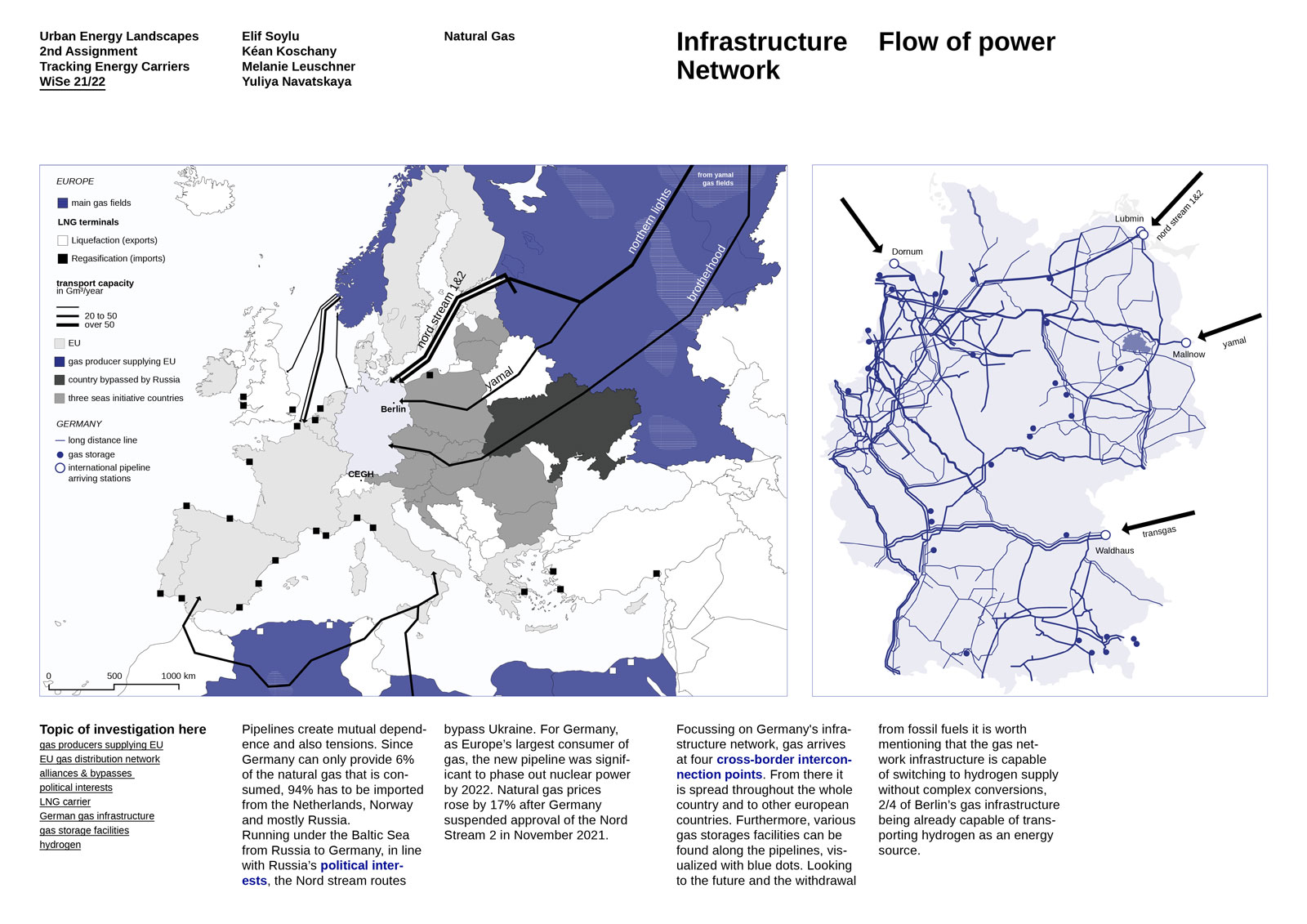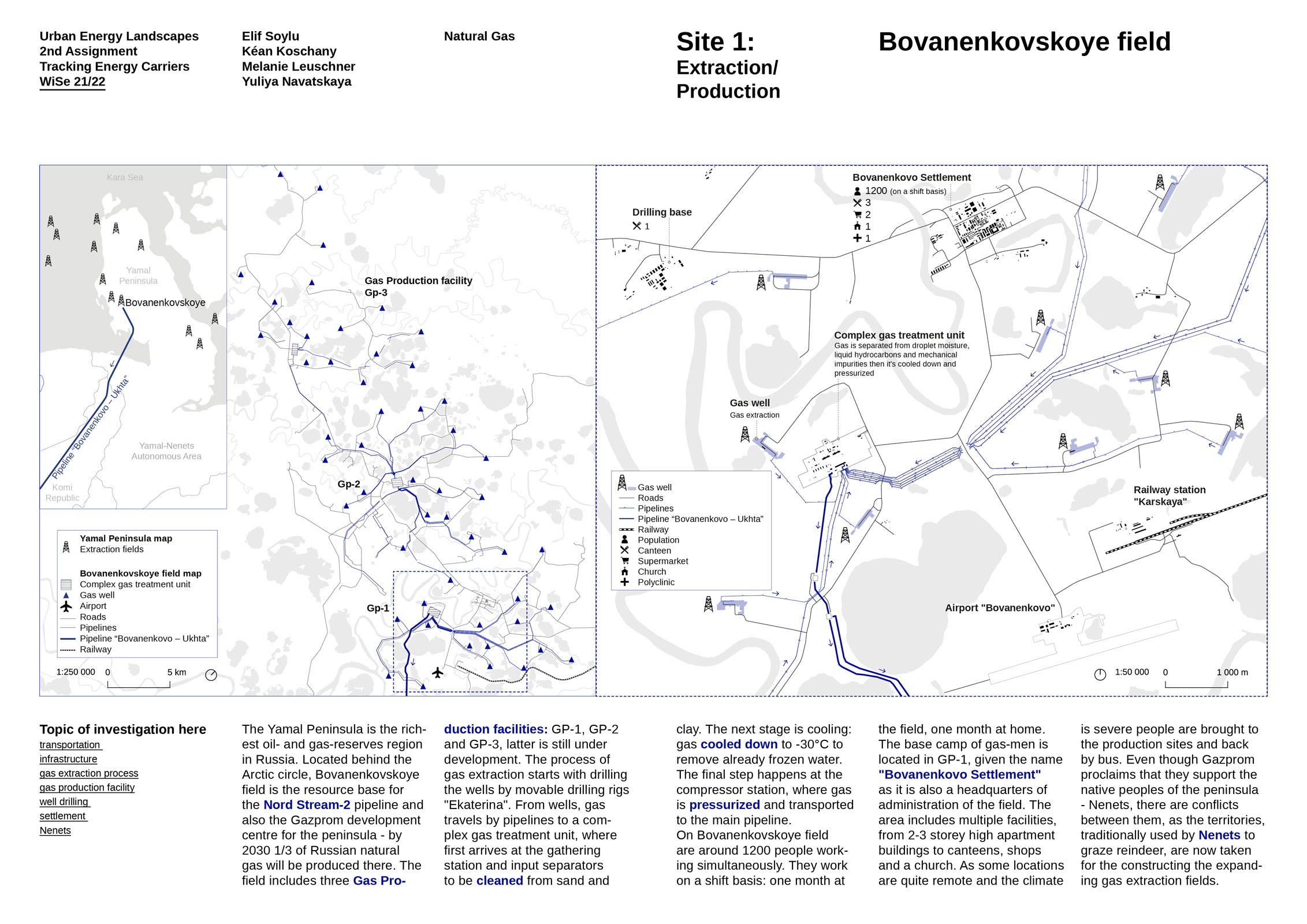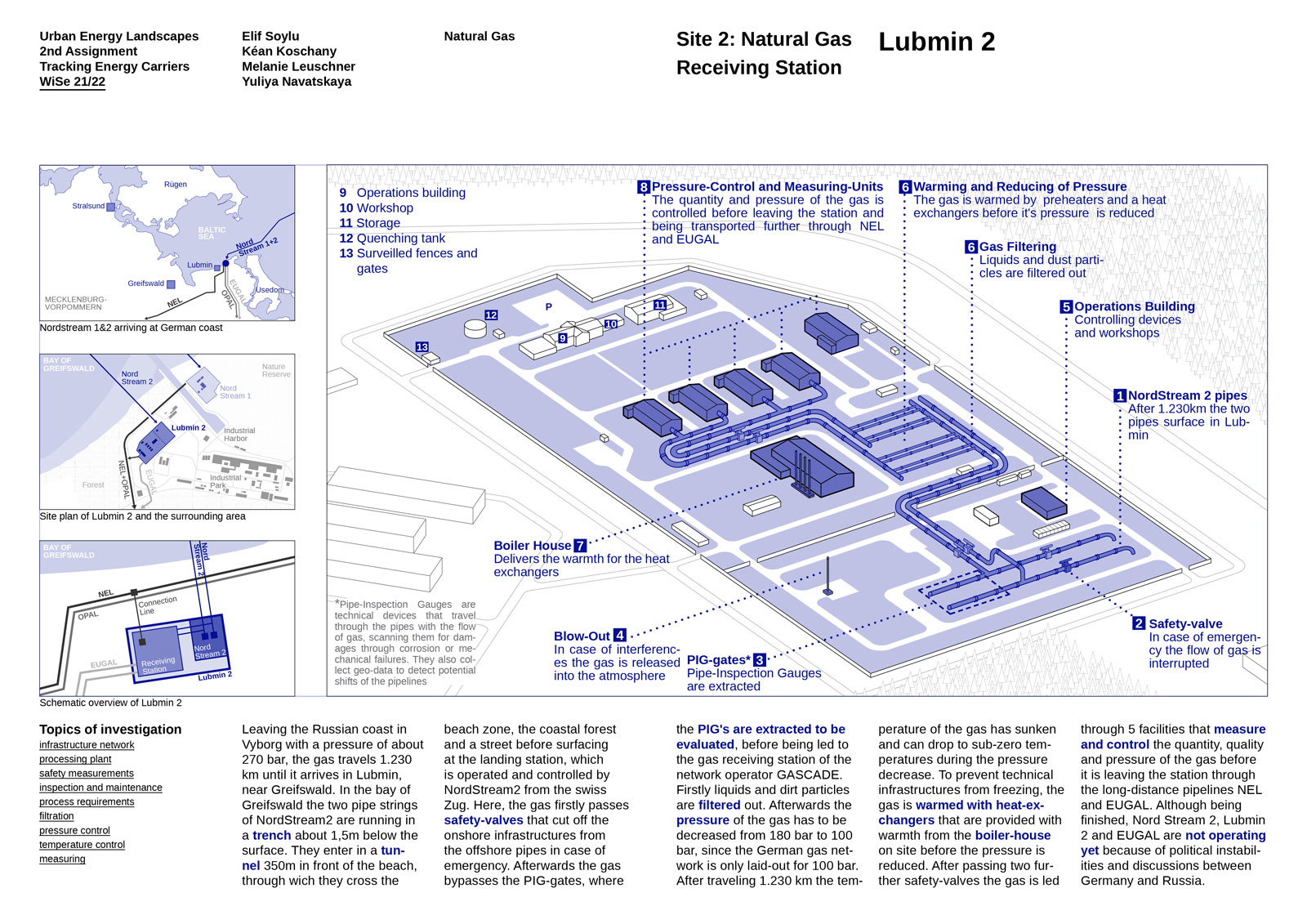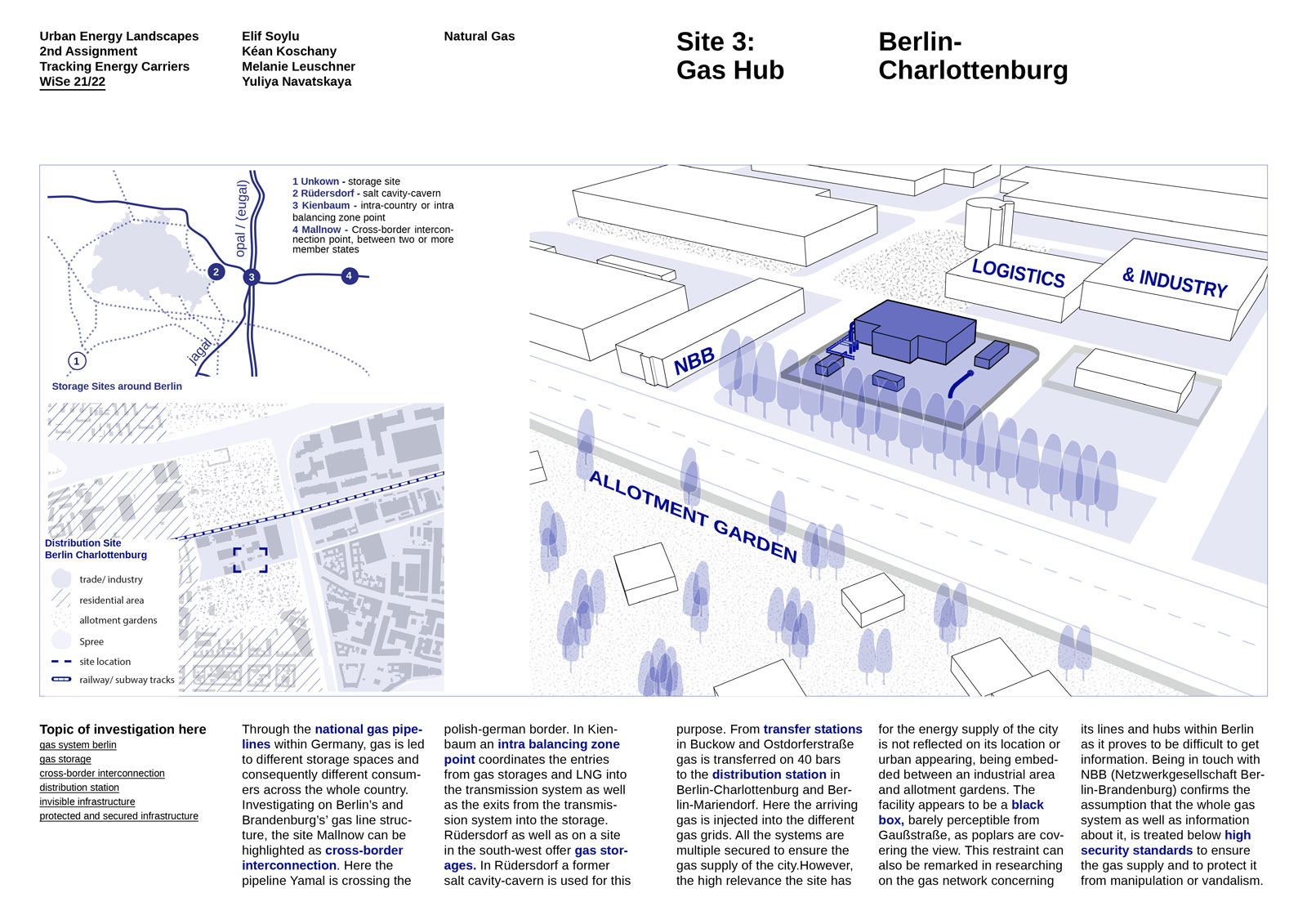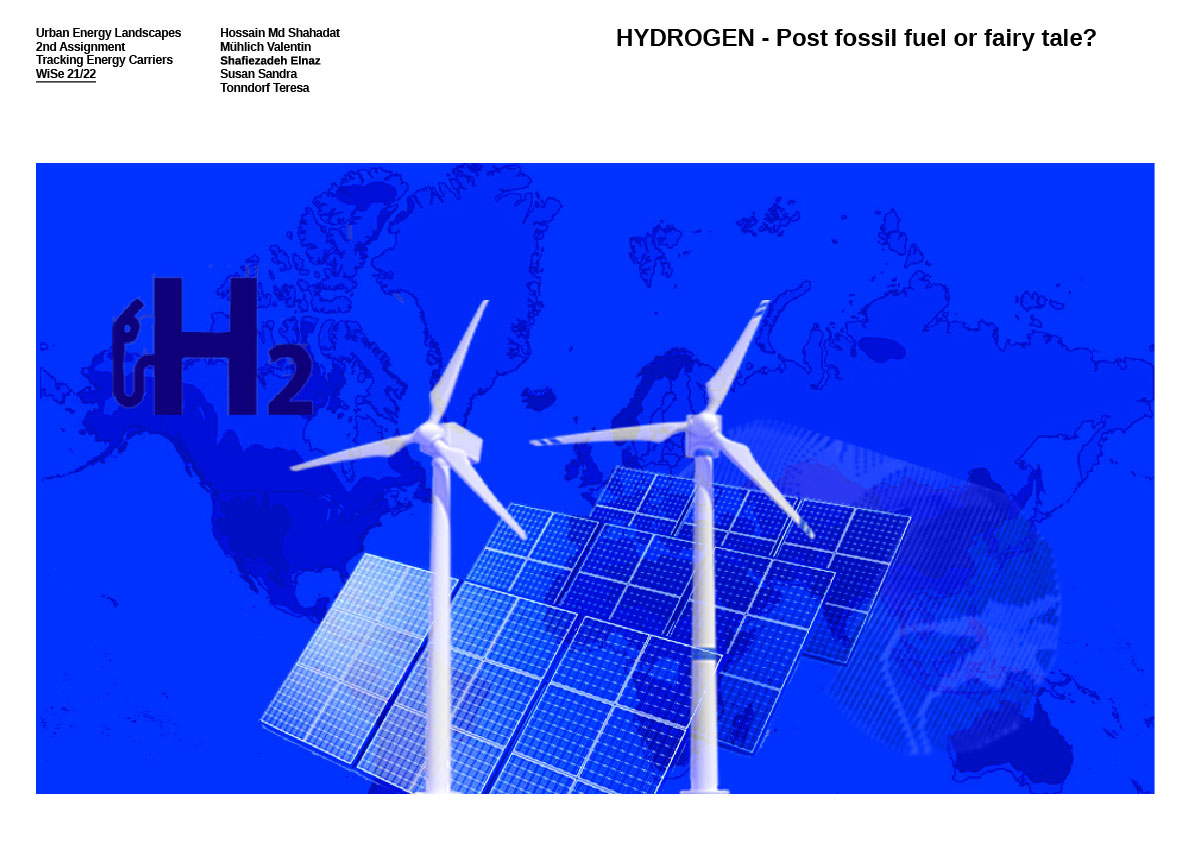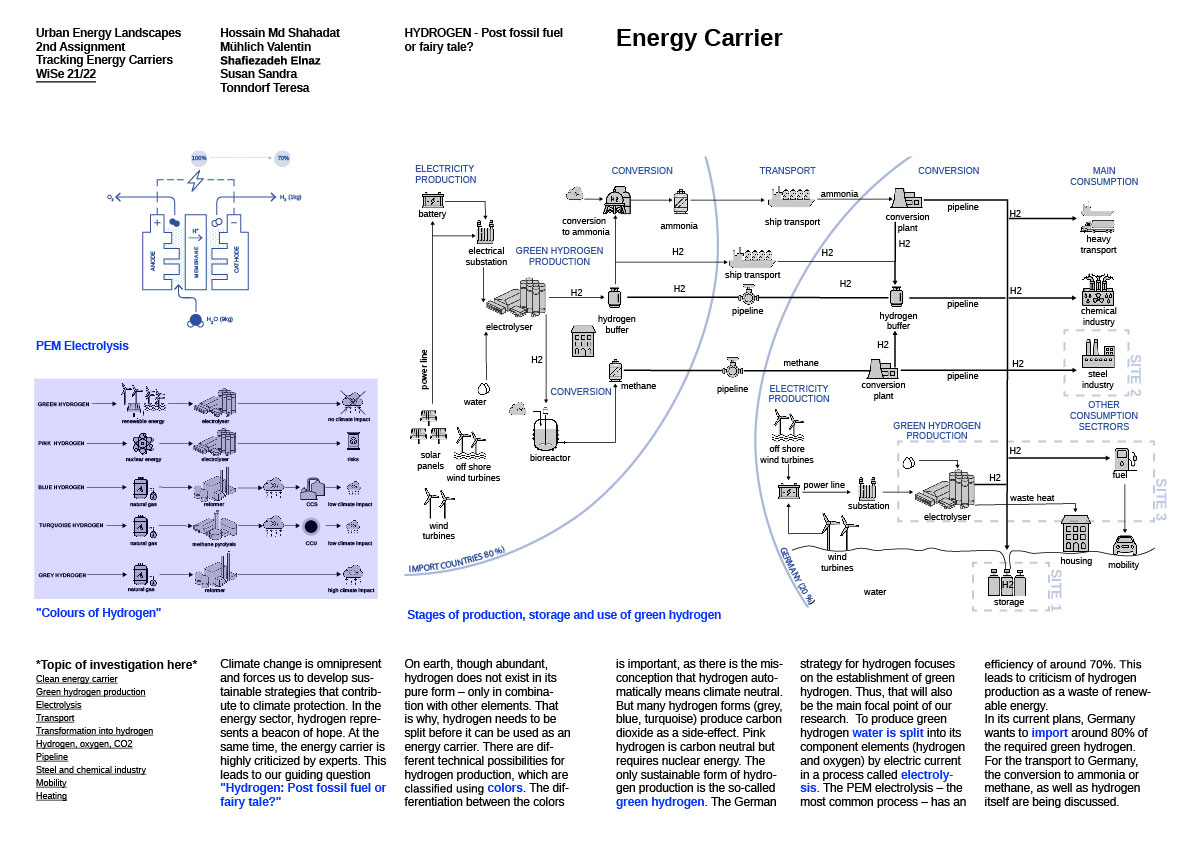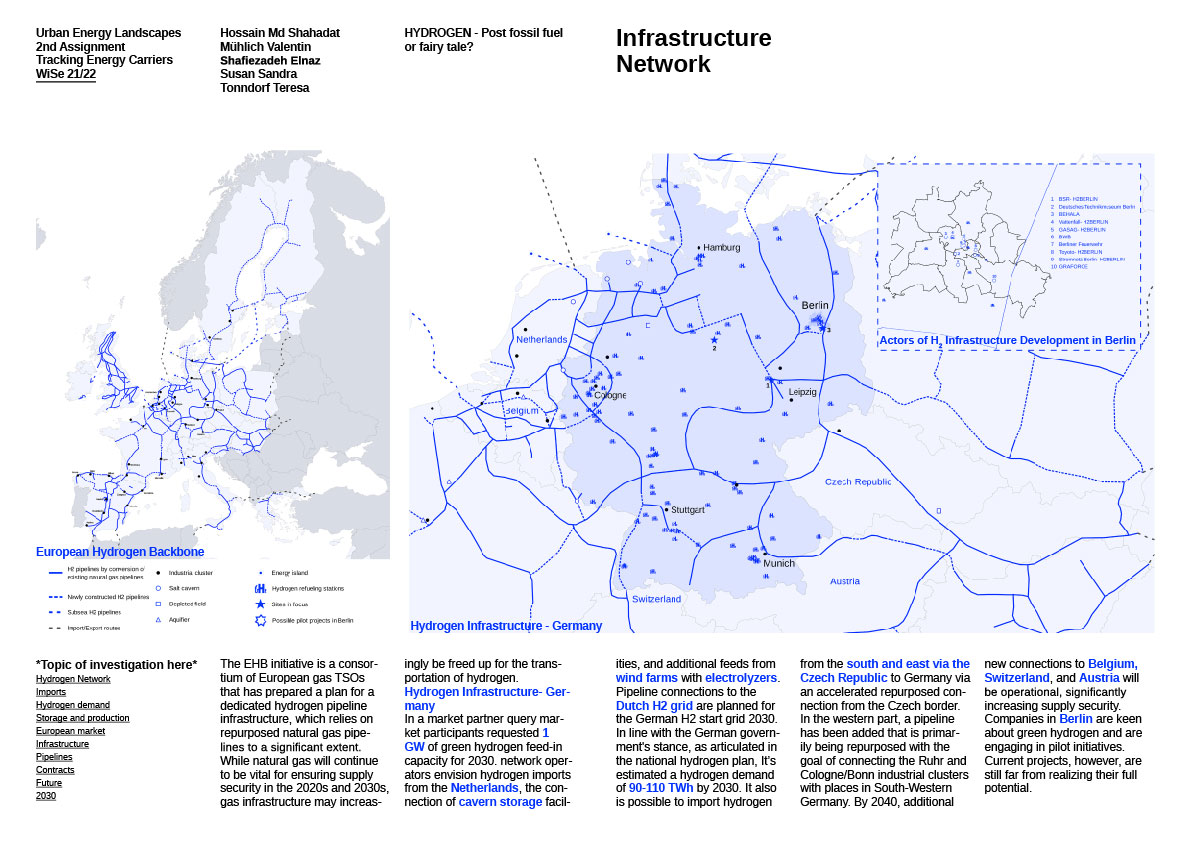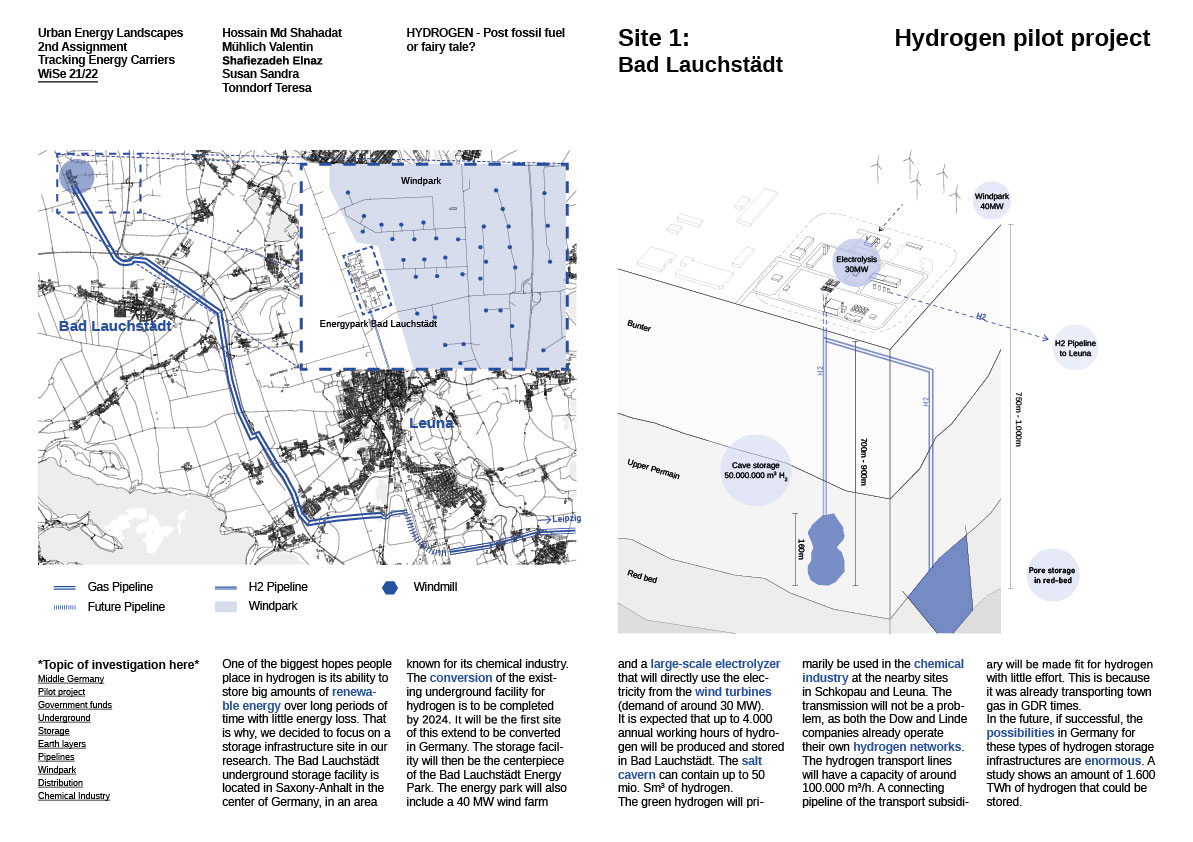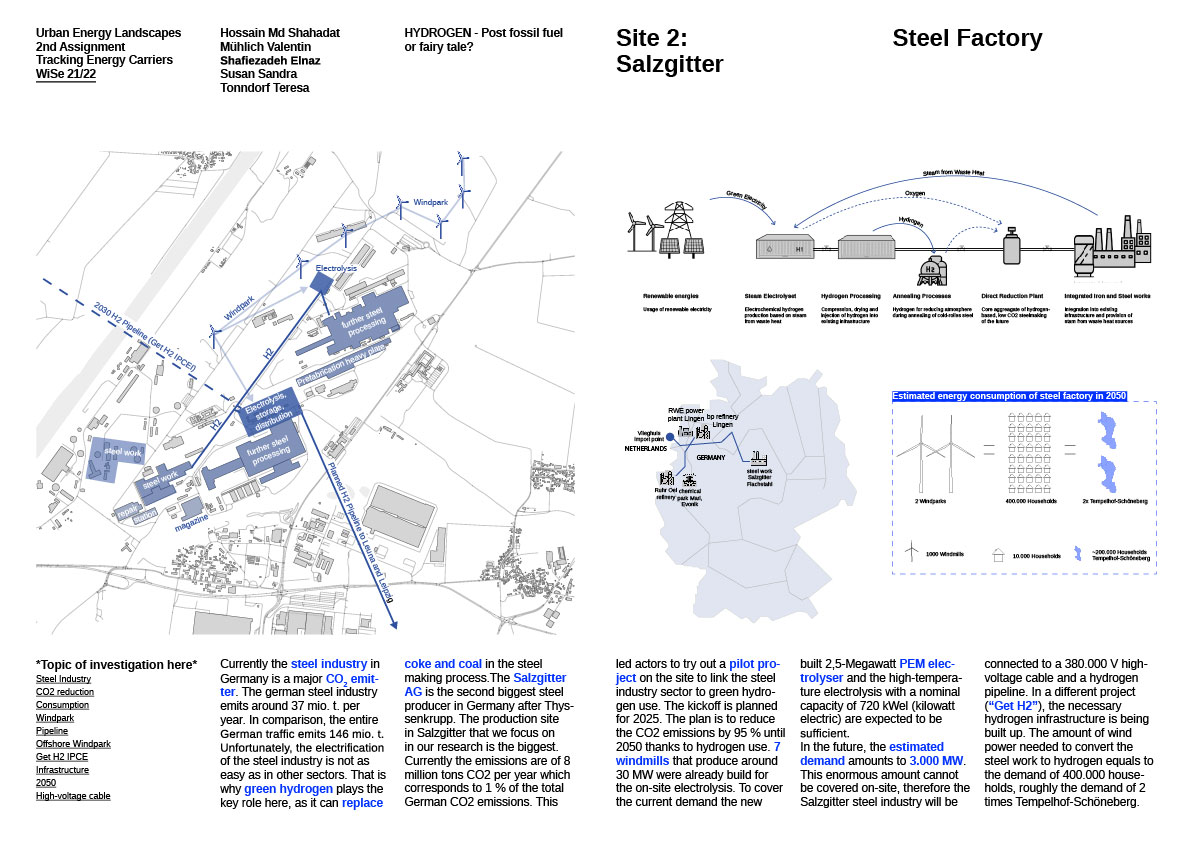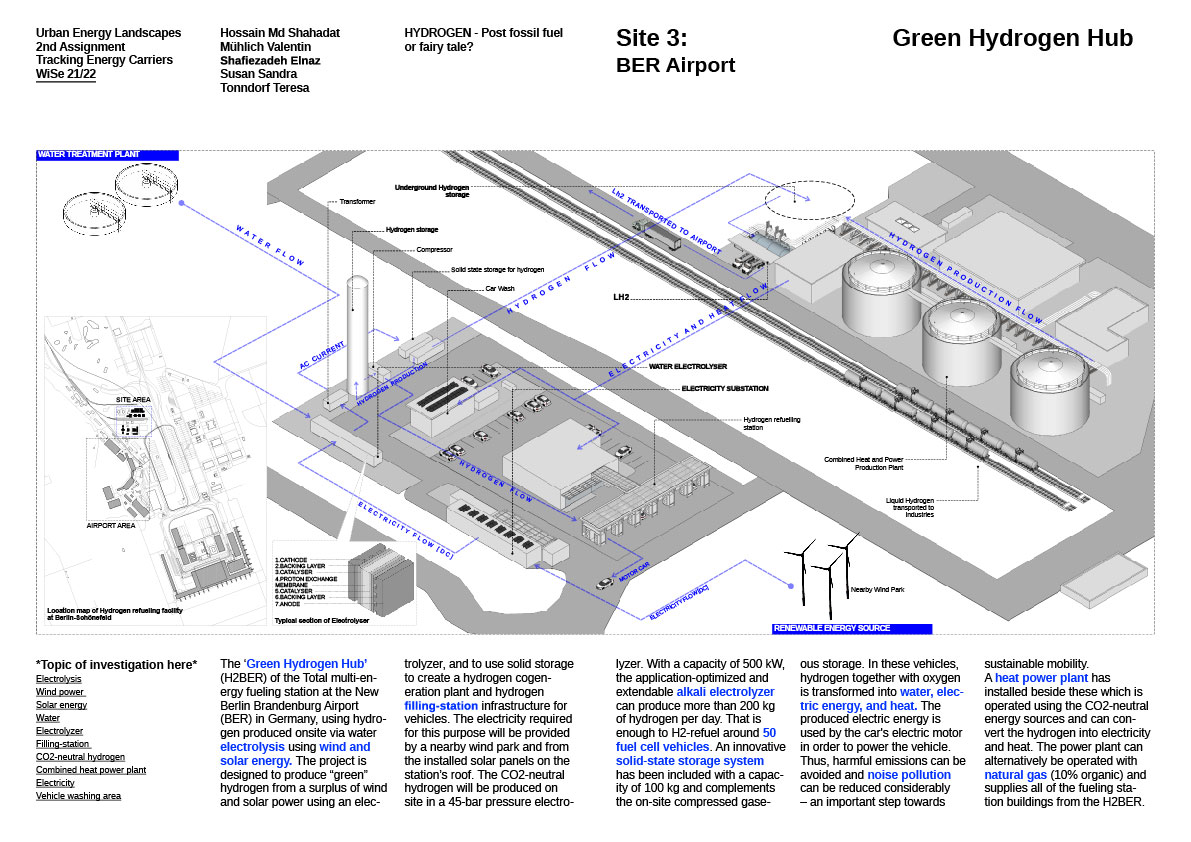Urban Energy Landscapes
Tracing
Gas &Hydrogen
By: Elif Soylu, Kéan Koschany, Melanie Leuschner & Yuliya Navatskaya
Shahadat MD Hossain, Valentin Mühlich, Elnaz Schafiezadeh, Sandra Susan & Teresa Tonndorf
Studio:
“Urban Energy Landscapes”
Prof. Dr. Elke Beyer
Rosa Pintos Hanhausen
David Bauer
Katerina Marečková
Ludwig Thanhäuser
Veit Vogel
Habitat Unit
Gas
Natural gas is used to heat 45% of all European households. It is often stated to be the “bridge fuel” until renewable energy sources are setted and can be used comprehensively. Further the current development of the pipeline project NordStream2 displays to which extent the topic is charged politically and which mutual dependencies and tensions between different actors can arise.
During this project we took a closer look into the nature of the fossil energy carrier, its distribution chains, infrastructure networks and involved actors.
Hydrogen
Climate change is omnipresent and forces us to develop sustainable strategies that contribute to climate protection. In the energy sector, hydrogen represents a beacon of hope. At the same time, the energy carrier is highly criticized by experts. This leads to our guiding question, "Hydrogen: Post fossil fuel or fairy tale?"
BB2040
[EN] Berlin Brandenburg 2040 was initiated by the Habitat Unit in cooperation with Projekte International and provides an open stage and platform for multiple contributions of departments and students of the Technical University Berlin and beyond. The project is funded by the Robert Bosch Foundation.
[DE] Berlin Brandenburg 2040 wurde initiiert von der Habitat Unit in Kooperation mit Projekte International und bietet eine offene Plattform für Beiträge von Fachgebieten und Studierenden der Technischen Universität Berlin und darüberhinaus. Das Projekt wird von der Robert Bosch Stiftung gefördert.
